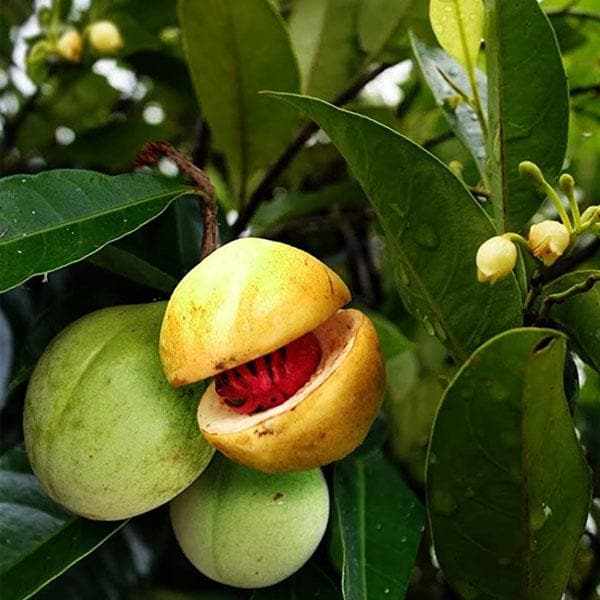
Nutmeg, Jaifal, Jaiphal - Plant
(MRP Inclusive of all taxes)
- Shipping ₹79 for entire order
- Dispatch in 7 days
- Country of origin: India

(MRP Inclusive of all taxes)
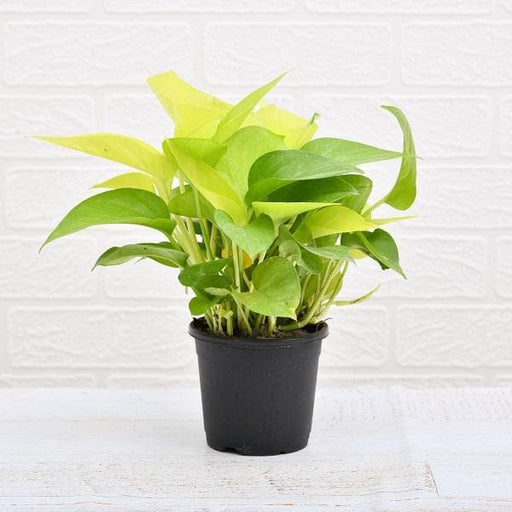 Save 29%
Save 29%
Air Purifier Money Plant with Pot The Air Purifier Money Plant, also known as Pothos or Epipremnum aureum, is a stunning indoor plant that...
View full details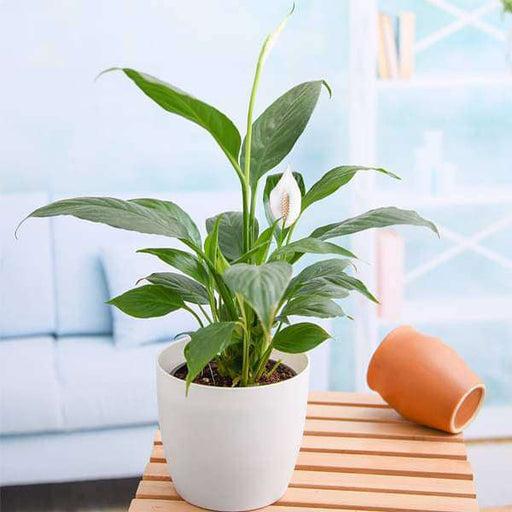
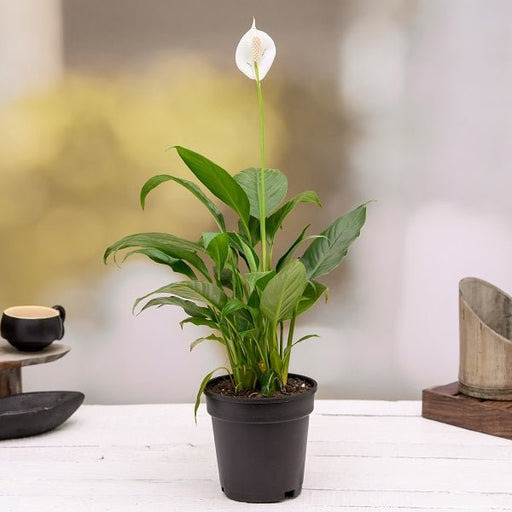 Save up to 15%
Save up to 15%
Peace Lily, Spathiphyllum - Plant The Peace Lily, scientifically known as Spathiphyllum, is a stunning houseplant celebrated for its elegant white...
View full details
 Save 25%
Save 25%
Jasminum sambac, Mogra, Arabian Jasmine - Plant Jasminum sambac, commonly known as Mogra or Arabian Jasmine, is a fragrant flowering plant...
View full details
 Save 18%
Save 18%
Combo Constituents Includes the Parijat Tree (Night-Flowering Jasmine), a culturally significant plant with fragrant flowers. Description The Pari...
View full details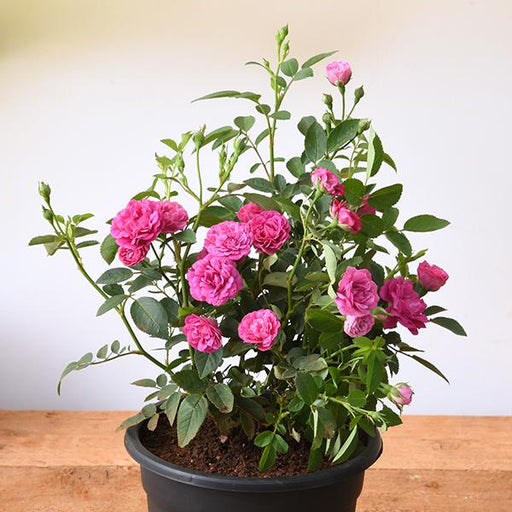
 Save 25%
Save 25%
Miniature Rose, Button Rose (Any Color) - Plant The Miniature Rose, also known as the Button Rose, is a charming and compact flowering plant that ...
View full details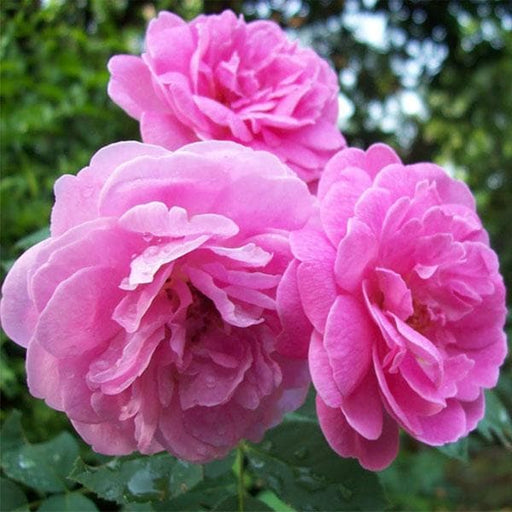 Save 25%
Save 25%
Damascus Rose, Scented Rose (Any Color) - Plant The Damascus Rose, also known as Rosa damascena, is a timeless symbol of beauty and romanc...
View full details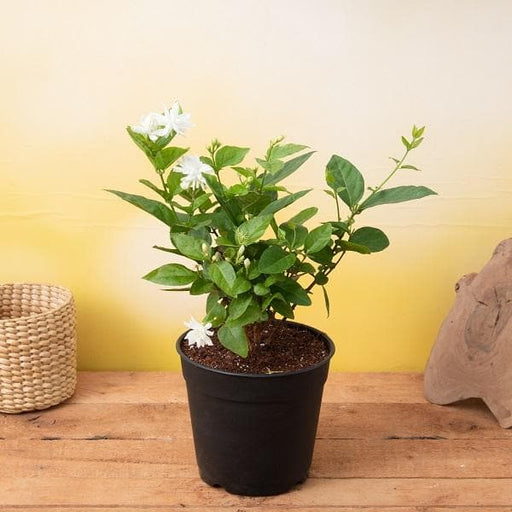
 Save 17%
Save 17%
Beautiful Fragrant Mogra, Arabian Jasmine Plant with Pot The Beautiful Fragrant Mogra, also known as Arabian Jasmine (Jasminum sambac), is...
View full details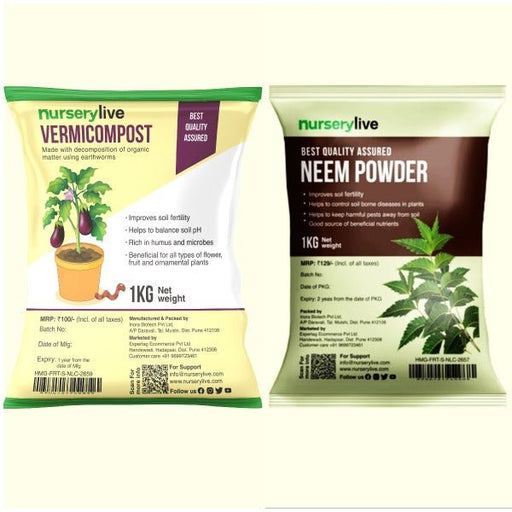 Save 15%
Save 15%
Pack of Vermicompost and Neem Cake for House Plants Transform your indoor garden with our premium Pack of Vermicompost and Neem Cake, spec...
View full details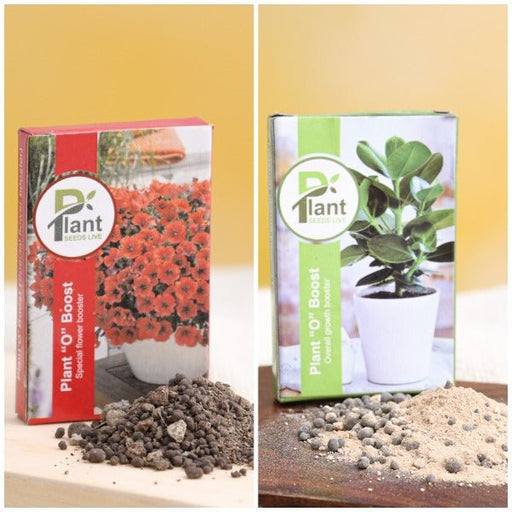
Pack of Plant Growth and Flower Boosters Unlock the full potential of your garden with our Pack of Plant Growth and Flower Boosters! This ...
View full details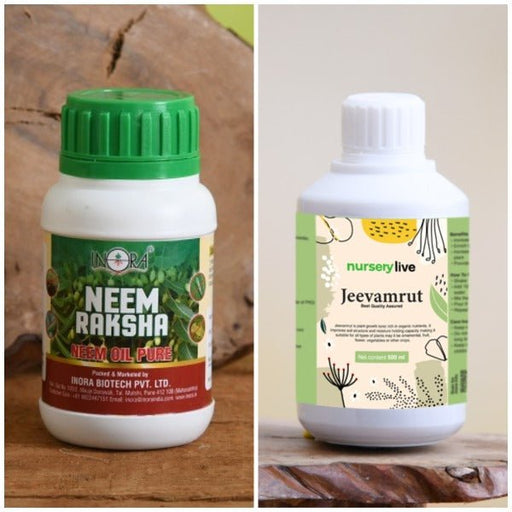 Save 38%
Save 38%
Combo of Jeevamrut and Neem Raksha for Easy Growth and Protection of Houseplants Transform your indoor garden with our exclusive combo of ...
View full details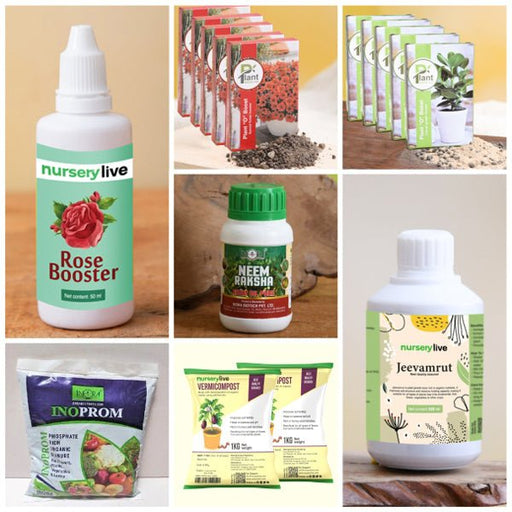 Save 22%
Save 22%
Plant Nutrients Kit (Pack of 16) for a Healthy Garden Transform your garden into a lush paradise with our Plant Nutrients Kit, featuring 1...
View full details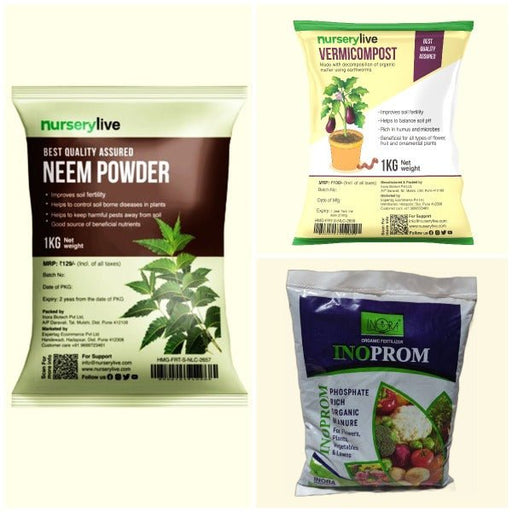 Save 16%
Save 16%
Combo of Top Plant Fertilizers Elevate your gardening game with our exclusive Combo of Top Plant Fertilizers, featuring two bags of premiu...
View full details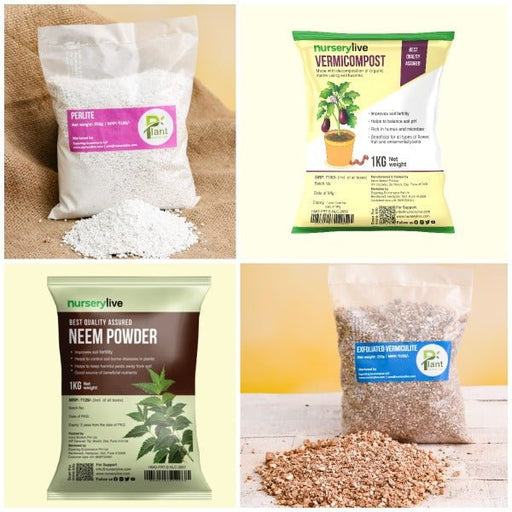 Save 24%
Save 24%
Pack of 4 Additives to Make Soil Healthy and Nutrient Rich Transform your garden into a thriving ecosystem with our Pack of 4 Additives de...
View full details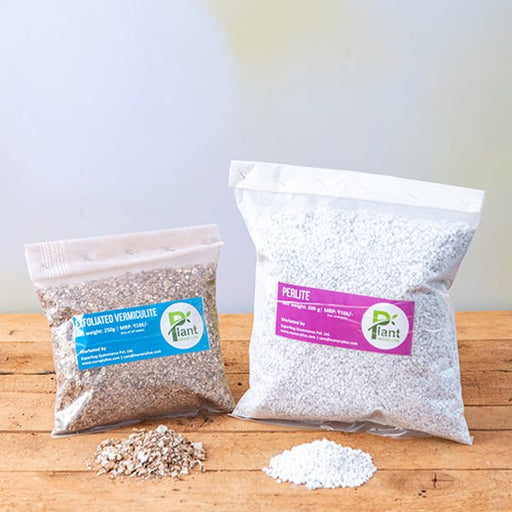 Save 30%
Save 30%
Transform your gardening experience with our premium Combo of Perlite and Vermiculite. This unique blend is designed to enhance soil aeration and ...
View full details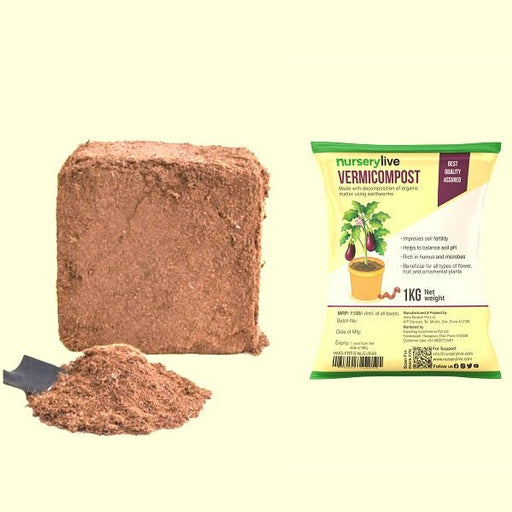 Save 27%
Save 27%
Combo of 2 Vermicompost and Cocopeat - Enrich Your Soil Naturally! Transform your garden into a thriving ecosystem with our Combo of 2 Ver...
View full details
 Save 35%
Save 35%
Best 6 Plants for Perfect Indoor Garden Transform your living space into a lush oasis with our curated collection of the Best 6 Plants for a...
View full details
 Save up to 50%
Save up to 50%
Mini Succulent Garden Pack Transform your space with our Mini Succulent Garden Pack, featuring a delightful collection of 4 any variety beautiful s...
View full details
 Save 30%
Save 30%
5 Best Fragrant Plants Transform your garden or indoor space into a fragrant paradise with our curated selection of the 5 Best Fragrant Plants. Th...
View full details
 Save 24%
Save 24%
Set of 2 Bonsai Looking Grafted Adeniums Transform your indoor or outdoor space with our exquisite Set of 2 Bonsai Looking Grafted Adenium...
View full details Save 45%
Save 45%
Top 4 Die Hard Succulents Pack Transform your indoor or outdoor space with our Top 4 Die Hard Succulents Pack, featuring a curated selecti...
View full details
 Save 30%
Save 30%
5 Best Indoor Plants Pack Transform your living space into a lush oasis with our '5 Best Indoor Plants Pack.' This carefully curated collection fe...
View full details
 Save 25%
Save 25%
Set of 4 Evergreen Air Purifier Plant Pack Transform your indoor space into a lush, green oasis with our Set of 4 Evergreen Air Purifier Pla...
View full details| SrNo | Item Name |
|---|---|
| 1 | Nutmeg, Jaifal, Jaiphal - Plant |
Nutmeg, scientifically known as Myristica fragrans, is a tropical evergreen tree native to the Spice Islands of Indonesia. This aromatic plant produces two valuable spices: nutmeg and mace. The seeds of the nutmeg tree are ground to create the warm, sweet flavor that enhances both sweet and savory dishes. With its glossy green leaves and unique fruit, the Nutmeg plant is not only a culinary delight but also an attractive addition to any garden.
What makes Nutmeg special is its dual-purpose nature; both the seed and the aril (mace) are harvested for culinary and medicinal uses. Historically, nutmeg was so valuable that it was once worth its weight in gold, leading to fierce competition among European powers for control of its trade. Today, it is celebrated for its rich flavor and numerous health benefits, including anti-inflammatory and antioxidant properties.
This plant is particularly special due to its unique growing conditions. Nutmeg thrives in humid, tropical climates and requires specific care to flourish. Its aromatic seeds are not only a culinary staple but also play a role in traditional medicine, making it a versatile addition to any herbal garden.
Nutmeg trees contribute to biodiversity and help maintain soil health in tropical ecosystems. They provide habitat for various species and play a role in carbon sequestration, making them beneficial for the environment. Sustainable cultivation practices are essential to ensure the longevity of nutmeg production and its ecological benefits.
Nutmeg, or Jaifal, is not just a spice that makes your holiday eggnog taste like a dream; it’s also a treasure trove of health benefits! Packed with antioxidants, it can help with digestion, improve sleep, and even boost your mood. Who knew that a sprinkle of this aromatic wonder could turn you into a wellness guru? Just remember, moderation is key—too much nutmeg can lead to some rather nutty side effects!
Growing a nutmeg tree is like raising a diva; it requires the right conditions to thrive! These tropical beauties love warm, humid climates and well-drained soil. If you’re thinking of planting one, make sure you have a sunny spot and plenty of patience. After all, good things come to those who wait—like the sweet aroma of freshly harvested nutmeg!
Nutmeg is the culinary equivalent of a secret agent; it sneaks into both sweet and savory dishes, enhancing flavors without stealing the spotlight. From creamy pasta sauces to spiced cakes, this versatile spice can elevate your cooking game. Just a pinch can transform your dish from “meh” to “wow!” So, don your chef’s hat and let nutmeg work its magic in your kitchen!
If you thought nutmeg was just for baking, think again! Nutmeg essential oil is the aromatic superstar of the wellness world. Known for its anti-inflammatory and analgesic properties, it can soothe sore muscles and even help with stress relief. Just a few drops in a diffuser can turn your home into a spa-like sanctuary. Who knew that nutmeg could be your new best friend in relaxation?
In the world of Ayurveda, nutmeg is revered as a powerful herb with a plethora of benefits. It’s believed to balance the doshas and promote overall well-being. Whether you’re sipping on a warm nutmeg-infused tea or using it in a soothing massage oil, this spice is a holistic powerhouse. So, channel your inner yogi and let nutmeg guide you on your wellness journey!
Harvesting nutmeg is like a treasure hunt in the tropics! The process involves picking the ripe fruit, which is then split open to reveal the precious seed inside. This seed is what we know as nutmeg, while the red aril surrounding it is known as mace. It’s a labor of love that requires skill and timing, but the reward is worth it—freshly harvested nutmeg is a flavor explosion!
Nutmeg has a history as rich as its flavor! Once considered more valuable than gold, it was the spice that sparked wars and fueled trade routes. The quest for nutmeg led explorers to distant lands, and it played a significant role in the spice trade. So, the next time you sprinkle some on your latte, remember you’re indulging in a piece of history!
Nutmeg and mace are like the dynamic duo of the spice world, but they each have their own unique flair. Nutmeg is the seed, while mace is the lacy covering that protects it. Both have distinct flavors and culinary uses, but nutmeg tends to be the star of the show in desserts, while mace shines in savory dishes. Together, they create a symphony of flavors that can elevate any meal!
If nutmeg were a baking ingredient, it would be the charming sous-chef that adds a touch of magic to your favorite recipes. From spiced cookies to creamy custards, nutmeg brings warmth and depth to baked goods. It’s the secret ingredient that makes your desserts unforgettable. So, next time you’re whipping up a batch of goodies, don’t forget to invite nutmeg to the party!
Struggling with sleepless nights? Nutmeg might just be your new bedtime buddy! Known for its calming properties, a sprinkle of nutmeg in your evening tea or warm milk can help you drift off into dreamland. It’s like a cozy hug for your insides, lulling you into a peaceful slumber. So, say goodbye to counting sheep and hello to sweet dreams with nutmeg!
Nutmeg has been a staple in traditional medicine for centuries, often used to treat ailments ranging from digestive issues to inflammation. Its warming properties make it a go-to for soothing colds and coughs. While it’s not a substitute for professional medical advice, incorporating nutmeg into your wellness routine can be a delightful way to embrace natural remedies. Just remember, a little goes a long way!
Nutmeg, jaifal, jaiphal—call it what you will—it's the spice that spices up your life! This aromatic seed from the nutmeg tree is a culinary superstar, adding warmth to dishes and drinks. It’s like the secret ingredient that makes your grandma’s pie taste like a hug!
Harvesting nutmeg is like a treasure hunt! Farmers pick the ripe fruit, then split it open to reveal the nutmeg seed inside. After a little drying dance in the sun, it’s ready to spice up your world. Just remember, no treasure without a little hard work!
Nutmeg is generally safe, but moderation is key! Too much can lead to a nutty nightmare, causing dizziness or hallucinations. So, sprinkle it wisely—think of it as the spice equivalent of a wild party: fun in small doses, but chaos if you overdo it!
Nutmeg isn’t just a pretty face; it’s packed with antioxidants and has anti-inflammatory properties! It can help with digestion and even improve sleep. So, sprinkle some on your bedtime tea and let the sweet dreams roll in—just don’t blame us if you wake up in a spice-induced daze!
Absolutely! Nutmeg is the dessert diva, adding a warm, cozy flavor to pies, cakes, and cookies. It’s like the fairy dust of baking—just a pinch can transform your treats from “meh” to “wow!” So, go ahead, sprinkle some magic on your next dessert!
Nutmeg loves to mingle! It pairs beautifully with creamy dishes, sweet potatoes, and even savory soups. Think of it as the social butterfly of spices, enhancing everything from pumpkin pie to your grandma’s famous mac and cheese. Just don’t let it crash the party uninvited!
You bet! Nutmeg has been a go-to in traditional medicine for centuries. It’s believed to help with digestive issues and even boost mood. Just remember, it’s not a miracle cure—more like a supportive friend who brings snacks to your wellness journey!
Store nutmeg like a precious gem! Keep it in a cool, dark place in an airtight container to preserve its flavor. Whole nutmeg lasts longer than ground, so consider investing in a grater. Freshly grated nutmeg is like a VIP pass to flavor town!
In large amounts, yes! Nutmeg contains myristicin, which can be toxic if consumed excessively. Think of it as the spice version of a rollercoaster—thrilling in moderation, but a wild ride if you go overboard. So, enjoy it, but don’t turn your kitchen into a spice rave!
Nutmeg and mace are like siblings with different personalities! Nutmeg is the seed, while mace is the lacy covering of the seed. Both bring unique flavors to the table, but nutmeg is warm and sweet, while mace has a more delicate, floral note. Spice it up with both!
Growing nutmeg at home is a tropical dream! It requires a warm, humid climate and a bit of patience, as it takes several years to bear fruit. If you’re up for the challenge, you’ll be rewarded with your very own spice factory—just don’t forget to share the wealth!